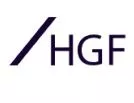- within Intellectual Property topic(s)
- in United Kingdom
- with readers working within the Retail & Leisure industries
Video overview:
The equivalent to the enablement requirement in the US at the EPO is Sufficiency. There is an increasing trend for the sufficiency of AI related patent applications to be challenged at the EPO. This is important to bear in mind when first drafting a patent application, because it cannot be resolved by later amendment or addition to the application. The core invention of AI-related patent application often lies in the practical implementation to solve a real-world problem It's therefore not uncommon for AI inventions to be claimed as a “black box” and this can cause problems at the EPO. There is a growing body of appeal cases at the EPO Boards of Appeal which have ended with refusal of an AI-related patent application for sufficiency. The EPO Guidelines have been updated and appear to be more lenient than the body of appeal cases suggests. Our advice based on this is to describe at least one embodiment in enough detail which would enable a skilled person to build, train and implement the machine learning aspect of an invention.
The content of this article is intended to provide a general guide to the subject matter. Specialist advice should be sought about your specific circumstances.
[View Source]

